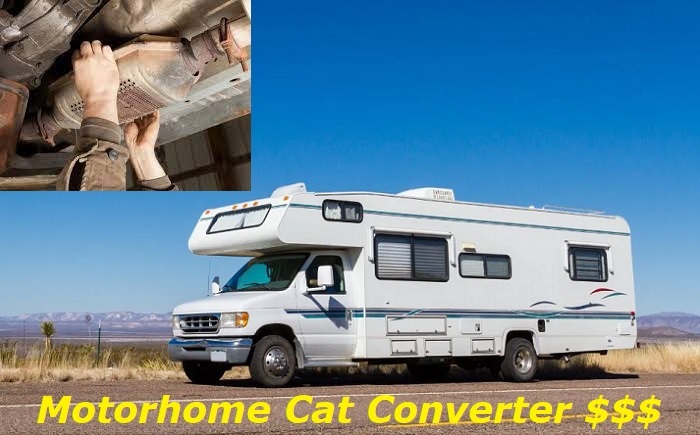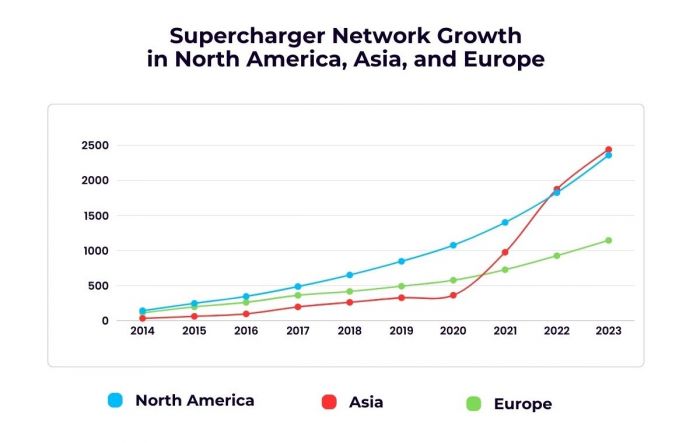If you own a motorhome, it's likely to have a big engine. It may be a diesel or a gasoline unit. Usually, motorhomes are powered by V8 or even V10 engines with big displacement. And you know what that means? It means that the exhaust systems of these engines may have some huge catalytic converters. And those may be sold at a decent price when broken.
We don't say that you should right now get your instruments and go to the motorhome to take the converters off. In most states, you will still need these cats to pass the fog test, so you'll have to invest. But today, we'll try to investigate how much you can earn if you sell a catalytic converter from your motorhome as a scrap part. Sometimes, the potential revenues are very surprising.

Here's what we are going to talk about:
- What are the types and sizes of catalytic converters in motorhomes?
- How much can you earn after selling the scrap converter?
- What can change the price of your catalytic converter?
- How long do converters live in motorhomes?
- How to protect cat converters from theft in your motorhomes?
Let's get started!
What types of cats are used in motorhomes, on average?
Well, it's hard to say something that is true for all types of motorhomes. One vehicle is powered by a super-modern turbocharged engine or even by a hybrid powerplant while some other motorhome is powered by a V10 gasoline engine by Ford. The difference in converter types will be just amazing.
Some cats will cost just a couple of dollars and you will sell them at a local scrapyard while some converters may cost hundreds of dollars and we'll tell you some secret ways to sell them at a good price.
Here's what you should know about cat converters in motorhomes:
- nearly any motorhome made within recent 30 years is (or should be) equipped with a catalytic converter;
- the majority of the motorhomes are equipped with the big engines, so they have a couple of converters;
- in most motorhomes, the converters are quite big and this makes them valuable for recycling companies and other buyers;
- the same types of cats are usually installed in school buses, big vans, and also in big heavy-duty trucks;
- these converters usually (but not always) contain a lot of precious metals - much more than the cats in passenger cars.
If your motorhome is equipped with a turbo engine, the converters will not be that big. Anyway, the eventual scrap price of any type of converter should be investigated. And we don't recommend you agree with the first price offer you get for your catalytic converter. You may just lose your money.
A lot of motorhome owners don't know that under their vehicles there is a part that can cost that much money. But the problem is that thieves know this very well. Motorhomes are big targets for thieves. And here are two main reasons why: these vehicles are often parked for a long time; and also these vehicles are easy to get under even with some instruments in your hands.
What's the scrap price of a catalytic converter?
The scrap price of a big catalytic converter from your motorhome may be between $200 and $550. The eventual price is offered by a buyer or you may use some online platforms like eBay to sell your catalytic converter by yourself. In this article, we'll tell you about some more efficient ways to sell a catalytic converter that doesn't work well anymore.
So, the price is at least $200, but the average price of a motorhome catalytic converter may be much higher. You may wonder why the difference is so big? It's not that hard to answer this question.
Here are the main factors that influence the price of your catalytic converter:
- metal prices on the market - unfortunately, the prices may change every day and every hour, and sometimes these changes are bad for sellers;
- the condition of the cat - old and shabby converters with broken bodies aren't likely to sell at good prices just because they may be destroyed;
- the serial number on the cat's body - the type and the model year of a converter are extremely important;
- also, one more crucial factor is the number of converters available for sale - this may also change the price dramatically;
- and the last factor is the way you are going to sell your catalytic converter and the company or person you choose for this.
As you see, not many factors can be controlled by a seller. You can't change or even predict the prices for precious metals, you can't change the type of converter you have, and you can't even change the way it looks. But what you can change is the place where you are going to sell the motorhome catalytic converter.
Today, we'll be telling you about different ways to sell the converter from your motorhome. But you will still need to compare prices in different companies before making up your final decision. Otherwise, you will not be able to sell the cat at a good price or at least get the best possible price you can get.
Who can buy a catalytic converter from your motorhome?
There are dozens of ways to sell your catalytic converter. You may choose any of them but remember that the final price of your cat depends exactly on the company or a private buyer you choose for this.
We don't recommend selling your motorhome catalytic converter to a scrapyard. Although most Americans will still do this, it's not the best choice in terms of your potential revenue. Also, we don't recommend selling a cat to exhaust shops and mechanics - they will only give you 30% of the real price.
Here are three ways we can recommend:
- eBay or any other website where you can advertise the motorhome catalytic converter for sale. It's a good way for those who have a lot of time and don't mind calls from buyers. The price will probably be the highest possible.
- Private buyers (resellers or middlemen). These guys are everywhere, they want to buy your cat converters at a relatively low price and then resell them at a higher price. Sometimes, these people offer good prices and they are pretty convenient to work with.
- Recycling companies. These are our favorites. They are official, they really recycle the converters, not just resell them. Also, these companies offer very convenient services for price inquiries on their websites.
If you compare what you are offered in a scrapyard and in a recycling company, you will be amazed by the difference. Sometimes, scrapyards just offer a third of what the converter should actually cost. And this makes them a bad choice for catalytic converter owners.
How long do converters live in motorhomes, on average?
A big motorhome catalytic converter can live between 100,000 and 200,000 miles. No one knows exactly when the cat will be broken. Its life depends on many factors like the quality of fuel you use and the condition of the engine. Also, damages from outside will reduce the lifetime of a catalytic converter.
We believe that after every 100,000 miles, you should keep an eye on how the catalytic converter is working. If it changes the way your engine works, you may start the process of replacement.
How to prevent motorhome cat converter theft?
Unfortunately, motorhomes often become targets for thieves. These vehicles have a solid ride height and this allows thieves to get under the vehicle easily and cut off the converter.
Here's what you can do to protect the cat converter from being stolen:
- always park your vehicle in places where at least some security can prevent problems;
- if you are parking just on the street, make sure you park over something that would prevent cat converter stealing;
- use special cages and wires to make it much harder to cut off the catalytic converter;
- install an advanced security system in your motorhome to prevent any security problems.
These are just some simple and optimal ways to prevent catalytic converter theft in motorhomes. Unfortunately, just parking your RV in your backyard will not save it from problems. Thieves are searching for such motorhomes and can get under them once you are away from home.
Final words
If you have a motorhome with an OEM catalytic converter that is malfunctioning, you can easily sell it before installing a new cat converter. Probably, the best way to deal with the old cat is to sell it to one of the recycling companies. Just find a couple of them and quote. They will offer you some prices and you'll be able to choose the best option.
Motorhome catalytic converters usually contain platinum and palladium, sometimes they may also contain a little rhodium. That's why recycling companies are ready to pay some money for these catalytic converters. If you follow our tips, you can sell your motorhome cat and get the best possible price for it.
About the authors
The CarAraC research team is composed of seasoned auto mechanics and automotive industry professionals, including individuals with advanced degrees and certifications in their field. Our team members boast prestigious credentials, reflecting their extensive knowledge and skills. These qualifications include: IMI: Institute of the Motor Industry, ASE-Certified Master Automobile Technicians; Coventry University, Graduate of MA in Automotive Journalism; Politecnico di Torino, Italy, MS Automotive Engineering; Ss. Cyril and Methodius University in Skopje, Mechanical University in Skopje; TOC Automotive College; DHA Suffa University, Department of Mechanical Engineering






Add comment